
Senior living provider Brookdale Senior Living (NYSE: BKD) met Wall Street’s revenue expectations in Q1 CY2025, with sales up 4% year on year to $813.9 million. Its GAAP loss of $0.28 per share was significantly below analysts’ consensus estimates.
Is now the time to buy Brookdale? Find out by accessing our full research report, it’s free.
Brookdale (BKD) Q1 CY2025 Highlights:
- Revenue: $813.9 million vs analyst estimates of $816.9 million (4% year-on-year growth, in line)
- EPS (GAAP): -$0.28 vs analyst estimates of -$0.11 (significant miss)
- Adjusted EBITDA: $124.1 million vs analyst estimates of $112.8 million (15.3% margin, 10% beat)
- EBITDA guidance for the full year is $445 million at the midpoint, above analyst estimates of $440.4 million
- Operating Margin: 3.6%, in line with the same quarter last year
- Free Cash Flow was -$18.42 million compared to -$45.55 million in the same quarter last year
- Market Capitalization: $1.33 billion
Company Overview
With a network of over 650 communities serving approximately 59,000 residents across 41 states, Brookdale Senior Living (NYSE: BKD) operates senior living communities across the United States, offering independent living, assisted living, memory care, and continuing care retirement communities.
Sales Growth
A company’s long-term performance is an indicator of its overall quality. Even a bad business can shine for one or two quarters, but a top-tier one grows for years. Brookdale struggled to consistently generate demand over the last five years as its sales dropped at a 4.8% annual rate. This wasn’t a great result and is a sign of poor business quality.
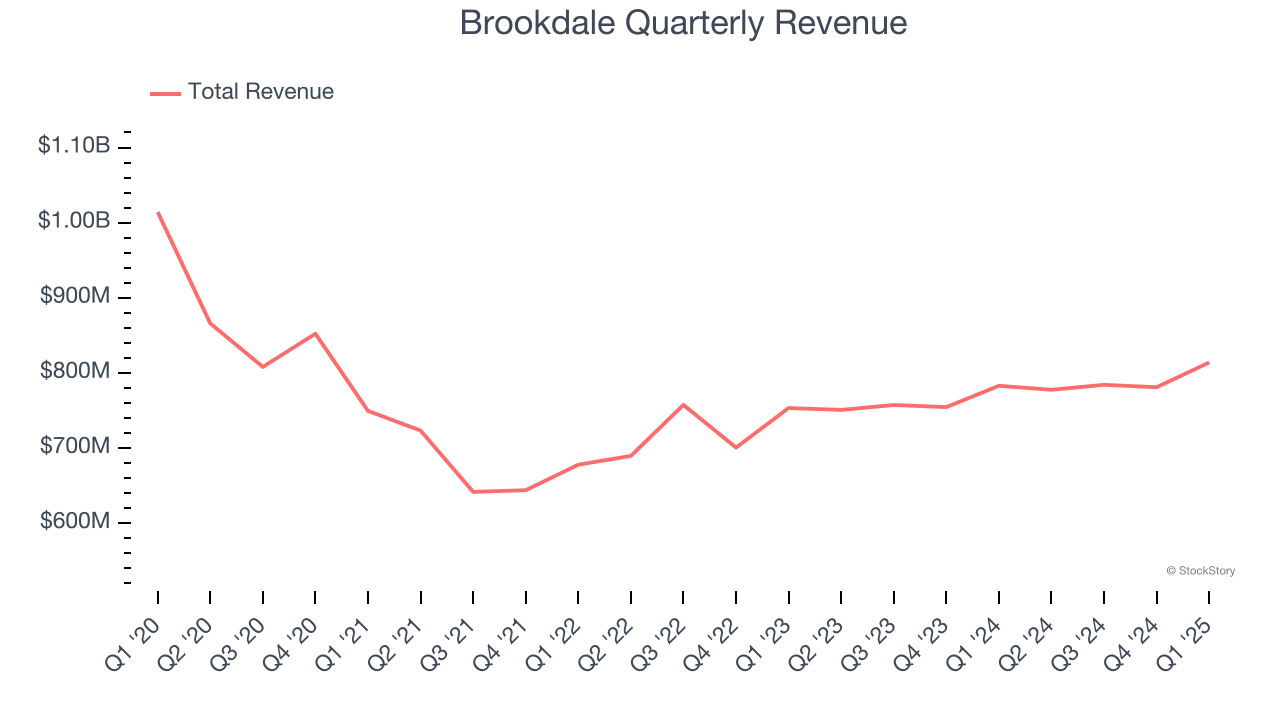
Long-term growth is the most important, but within healthcare, a half-decade historical view may miss new innovations or demand cycles. Brookdale’s annualized revenue growth of 4.3% over the last two years is above its five-year trend, but we were still disappointed by the results. 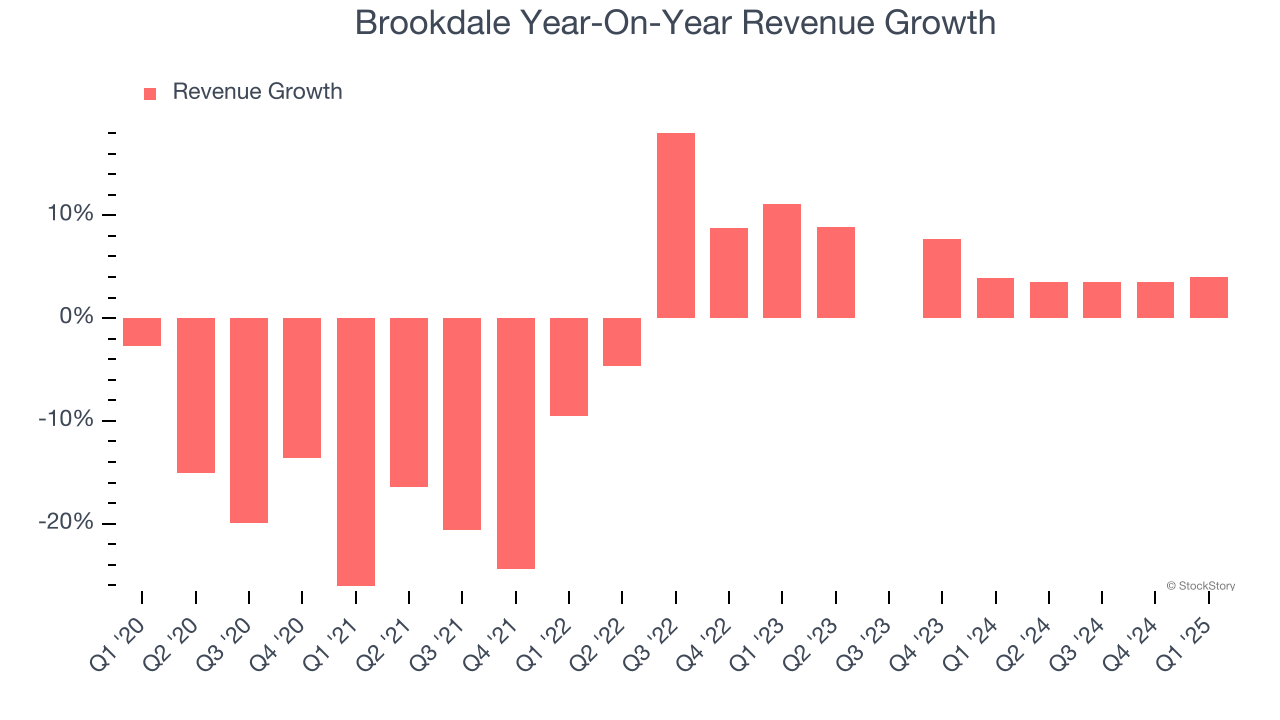
We can dig further into the company’s revenue dynamics by analyzing its most important segment, . Over the last two years, Brookdale’s revenue averaged 6.3% year-on-year growth. This segment has outperformed its total sales during the same period, lifting the company’s performance.
This quarter, Brookdale grew its revenue by 4% year on year, and its $813.9 million of revenue was in line with Wall Street’s estimates.
Looking ahead, sell-side analysts expect revenue to remain flat over the next 12 months, a deceleration versus the last two years. This projection doesn't excite us and indicates its products and services will face some demand challenges.
Today’s young investors won’t have read the timeless lessons in Gorilla Game: Picking Winners In High Technology because it was written more than 20 years ago when Microsoft and Apple were first establishing their supremacy. But if we apply the same principles, then enterprise software stocks leveraging their own generative AI capabilities may well be the Gorillas of the future. So, in that spirit, we are excited to present our Special Free Report on a profitable, fast-growing enterprise software stock that is already riding the automation wave and looking to catch the generative AI next.
Operating Margin
Although Brookdale was profitable this quarter from an operational perspective, it’s generally struggled over a longer time period. Its expensive cost structure has contributed to an average operating margin of negative 1% over the last five years. Unprofitable healthcare companies require extra attention because they could get caught swimming naked when the tide goes out. It’s hard to trust that the business can endure a full cycle.
On the plus side, Brookdale’s operating margin rose by 6.6 percentage points over the last five years. This performance was mostly driven by its past improvements as the company’s margin was relatively unchanged on two-year basis.
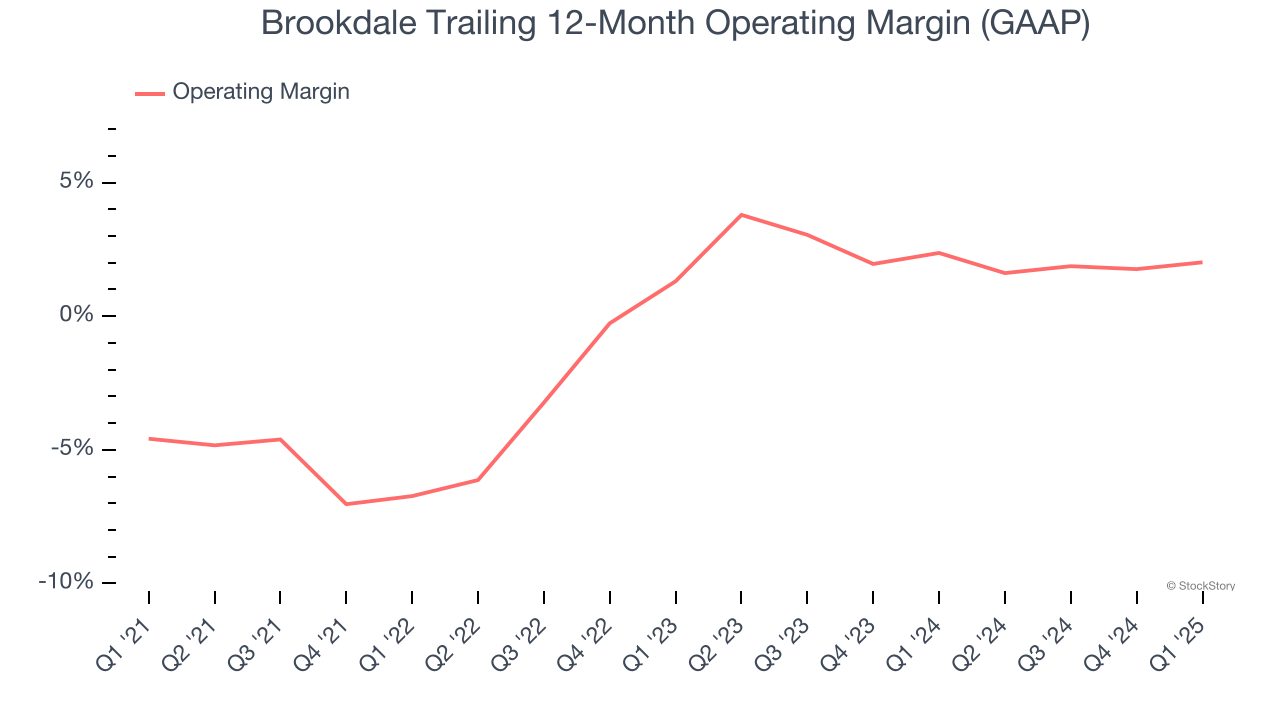
In Q1, Brookdale generated an operating profit margin of 3.6%, in line with the same quarter last year. This indicates the company’s overall cost structure has been relatively stable.
Earnings Per Share
Revenue trends explain a company’s historical growth, but the long-term change in earnings per share (EPS) points to the profitability of that growth – for example, a company could inflate its sales through excessive spending on advertising and promotions.
Sadly for Brookdale, its EPS declined by 27.1% annually over the last five years, more than its revenue. However, its operating margin actually expanded during this time, telling us that non-fundamental factors such as interest expenses and taxes affected its ultimate earnings.
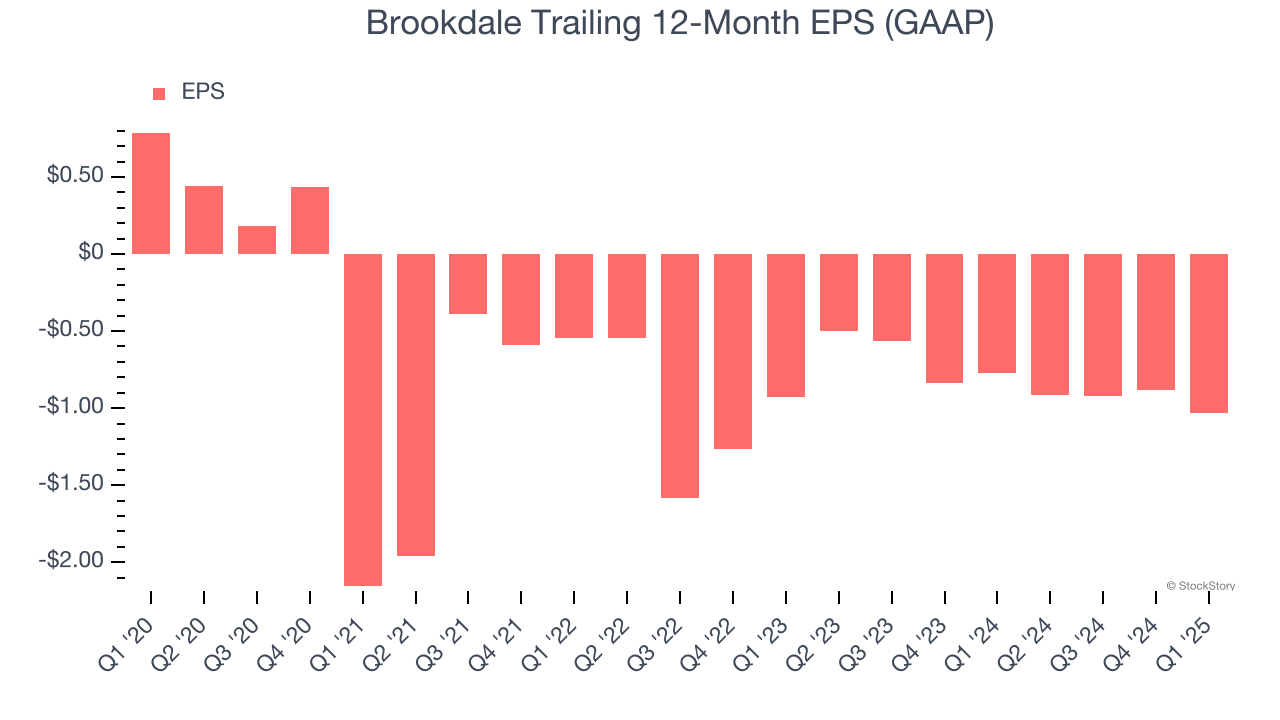
We can take a deeper look into Brookdale’s earnings to better understand the drivers of its performance. A five-year view shows Brookdale has diluted its shareholders, growing its share count by 25%. This dilution overshadowed its increased operating efficiency and has led to lower per share earnings. Taxes and interest expenses can also affect EPS but don’t tell us as much about a company’s fundamentals. 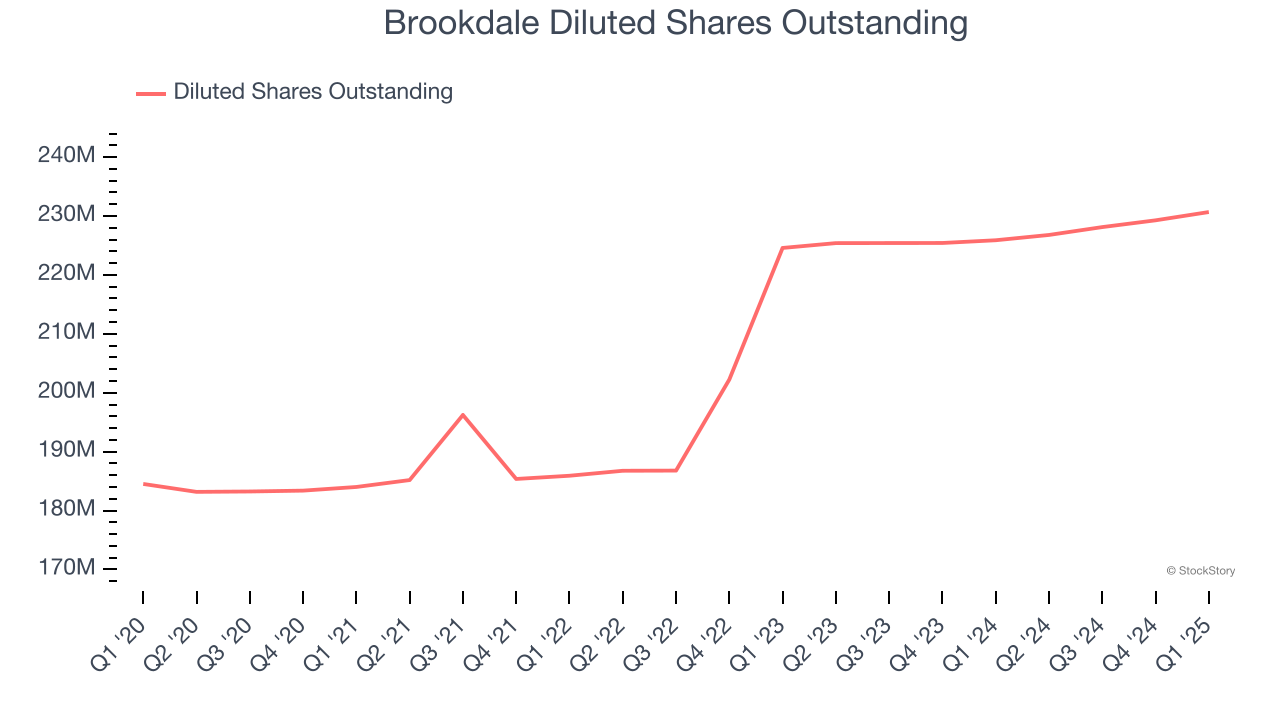
In Q1, Brookdale reported EPS at negative $0.28, down from negative $0.13 in the same quarter last year. This print missed analysts’ estimates. Over the next 12 months, Wall Street expects Brookdale to improve its earnings losses. Analysts forecast its full-year EPS of negative $1.03 will advance to negative $0.51.
Key Takeaways from Brookdale’s Q1 Results
It was good to see Brookdale provide full-year EBITDA guidance that slightly beat analysts’ expectations. On the other hand, its EPS missed significantly and its revenue was in line with Wall Street’s estimates. Overall, this was a softer quarter. The stock traded down 5.4% to $6.42 immediately following the results.
Brookdale’s latest earnings report disappointed. One quarter doesn’t define a company’s quality, so let’s explore whether the stock is a buy at the current price. We think that the latest quarter is only one piece of the longer-term business quality puzzle. Quality, when combined with valuation, can help determine if the stock is a buy. We cover that in our actionable full research report which you can read here, it’s free.





